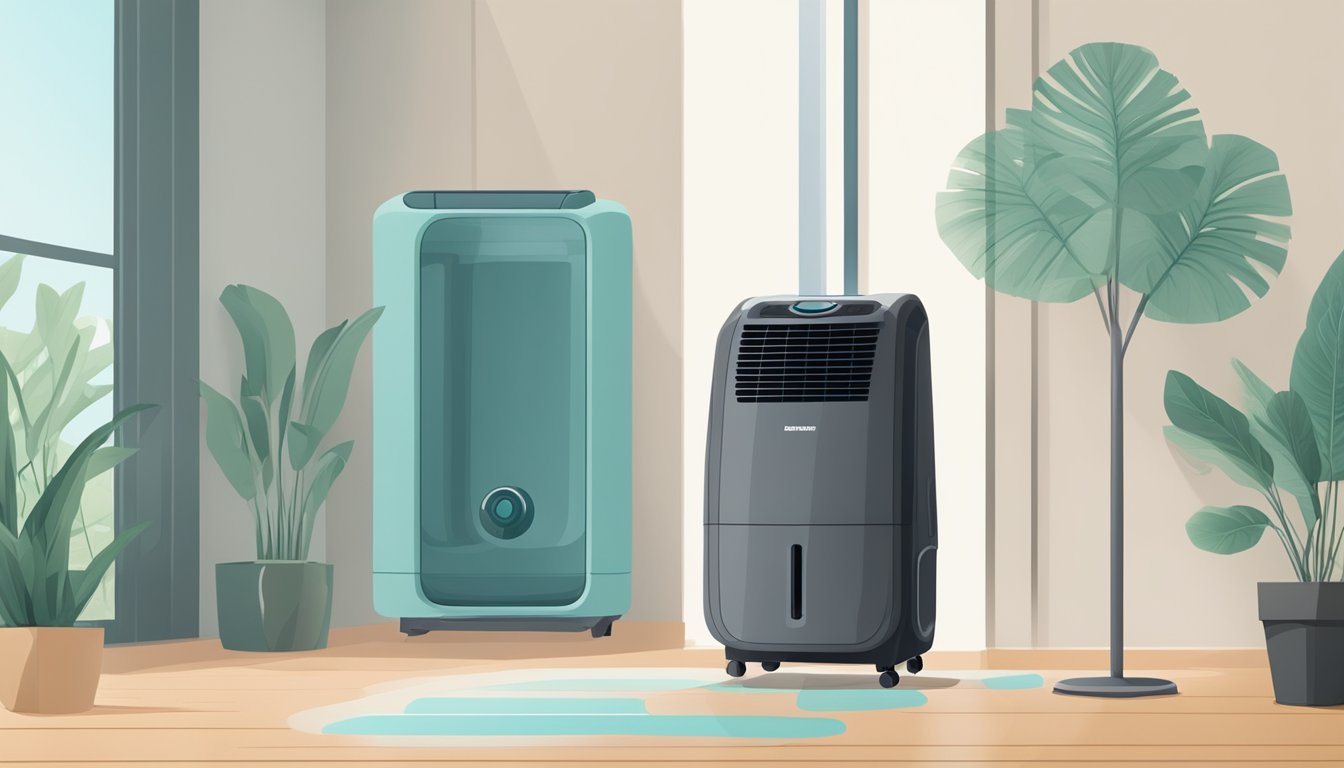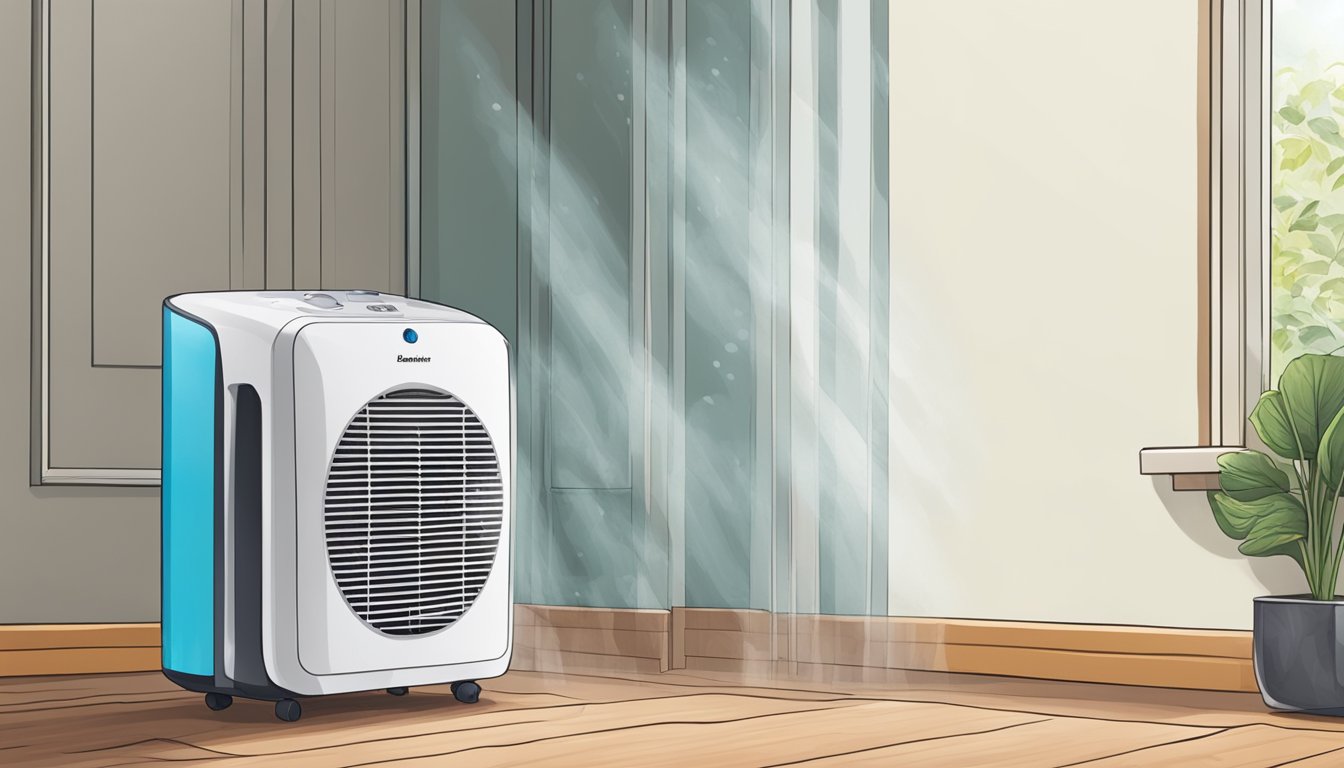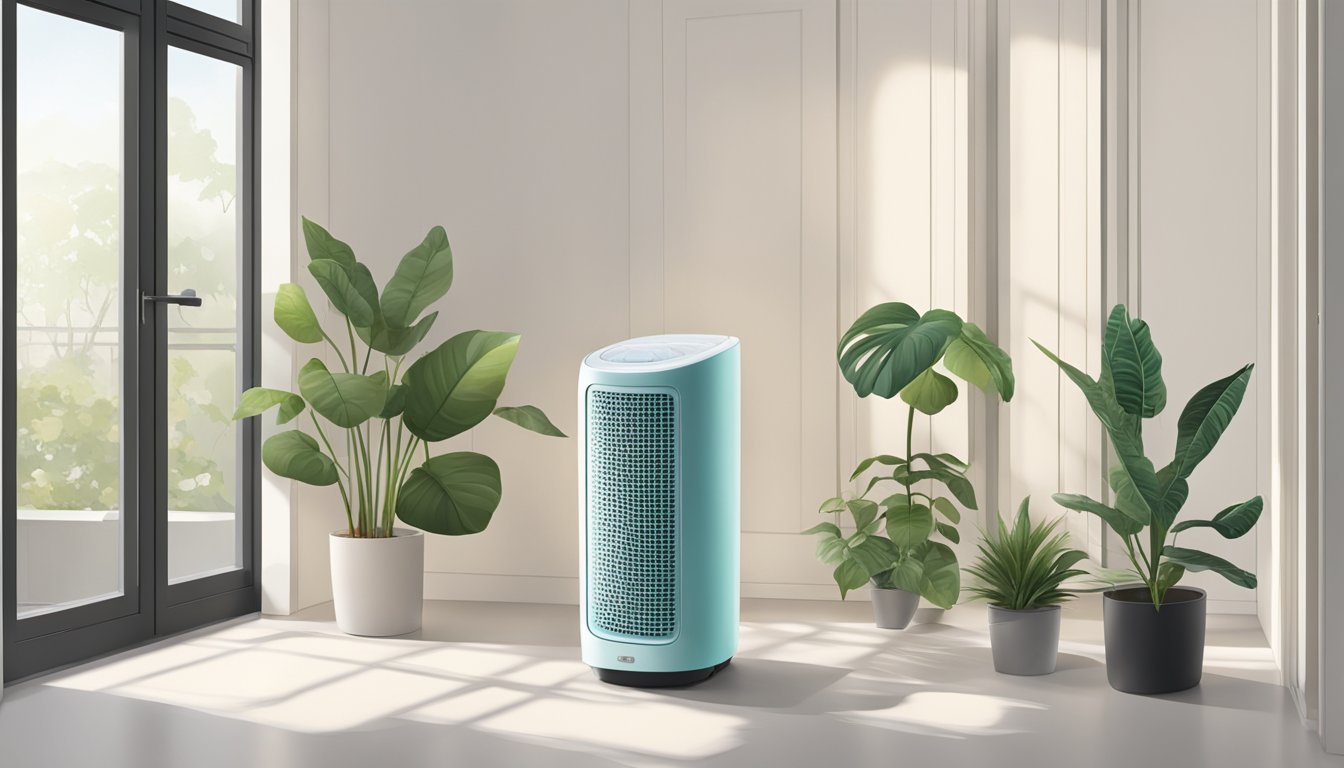Are you tired of feeling uncomfortable in your own home? Does the humidity in your space make it difficult to relax or get a good night's sleep? You may have heard that a dehumidifier can help alleviate these issues, but you may be wondering if it can also cool down your room. In this article, we'll explore the relationship between dehumidifiers and room temperature to help you optimise your space for maximum comfort and relaxation.

Dehumidifiers work by removing excess moisture from the air, which can help reduce humidity levels and make your space feel more comfortable. However, while dehumidifiers can have a cooling effect, they do not actually lower the temperature in your room like an air conditioner would. In fact, some dehumidifiers may even emit heat as they operate. So, can a dehumidifier cool a room? The answer is no, but it can help create a more comfortable environment by reducing humidity levels and improving air quality.
Key Takeaways
- Dehumidifiers do not cool down a room like an air conditioner, but they can help reduce humidity levels and improve air quality.
- Optimal humidity levels for indoor comfort are between 30% and 50%.
- Proper maintenance and placement of your dehumidifier can help maximise its effectiveness.
How Dehumidifiers Influence Room Temperature

If you're wondering whether a dehumidifier can cool a room, the answer is both yes and no. While it doesn't lower the temperature of the room, it can make it feel cooler and more comfortable. Let's explore how dehumidifiers influence room temperature.
Understanding Humidity and Comfort
When the air in your room is humid, it can feel sticky and uncomfortable. This is because your body relies on sweat to cool down, but when the air is already full of moisture, sweat doesn't evaporate as quickly, making you feel warmer. By reducing the humidity level in the room, a dehumidifier can help you feel cooler and more comfortable.
The Science Behind Dehumidifiers and Cooling
Dehumidifiers work by removing excess moisture from the air. There are two types of dehumidifiers: desiccant and refrigerant.
-
Desiccant dehumidifiers use a desiccant material, such as silica gel, to absorb moisture from the air. They are best suited for smaller spaces and low humidity levels.
-
Refrigerant dehumidifiers use a coil to cool the humid air, causing the moisture to condense and collect in a reservoir. They are better suited for larger spaces and higher humidity levels.
While neither type of dehumidifier actually cools the air, the process of removing moisture can make the room feel cooler. This is because the air feels less humid and your body can cool down more efficiently through sweat evaporation.
Additionally, a dehumidifier can help you feel cooler and more comfortable by reducing the humidity level in the room. While it doesn't actually cool the air, it can make it feel cooler by allowing your body to cool down more efficiently. If you're looking for a way to stay comfortable in hot and humid weather, a dehumidifier can be a great investment.
Optimising Your Space with a Dehumidifier

A dehumidifier can be a lifesaver during humid summer months, providing relief from respiratory discomfort and preventing mold growth. However, did you know that a dehumidifier can also help cool down a hot room? With expert advice and strategic placement, you can optimise your space for maximum efficiency and comfort.
Strategic Placement for Maximum Efficiency
The placement of your dehumidifier plays a crucial role in its effectiveness. To maximise its cooling effect, place your dehumidifier near an air conditioning unit or fan. This will help circulate the dry air throughout the room, providing an energy-efficient cooling effect.
If you have a larger indoor environment, it's important to consider the square footage of the space. A larger space will require a more powerful dehumidifier, so make sure to choose one that is suitable for your needs. Additionally, placing your dehumidifier near windows or in a basement can help prevent condensation and mold growth.
Maintaining Your Dehumidifier for Longevity
To ensure your dehumidifier lasts for years to come, it's important to maintain it properly. This includes emptying the water tank or reservoir regularly, or using a hose for continuous drainage. Additionally, desiccant dehumidifiers require regular maintenance to replace the desiccant material.
To prevent skin irritation and maintain indoor air quality, it's important to clean your dehumidifier regularly. This includes wiping down the exterior and interior with a damp cloth, and cleaning the air filter to prevent dust buildup.
By optimising your space with a dehumidifier, you can create a comfortable environment while reducing bills and energy costs. At Megafurniture.sg, we offer a wide range of dehumidifiers, including the Midea 50-Pint EnergyStar Smart Dehumidifier, to suit your needs. Shop now and experience the benefits of an energy-efficient, cool and comfortable home.
Frequently Asked Questions
Do dehumidifiers have a cooling effect during the summer months?
Dehumidifiers do not cool the air in a room. They remove excess moisture from the air, which can make it feel more comfortable and reduce the growth of mould and mildew. However, a dehumidifier can help your air conditioner work more efficiently by reducing the humidity levels in the room.
Is it beneficial to operate a dehumidifier alongside an air conditioner?
Yes, it can be beneficial to operate a dehumidifier alongside an air conditioner. A dehumidifier can help your air conditioner work more efficiently by reducing the humidity levels in the room. This can help you save money on your energy bills and make your home more comfortable.
Might a dehumidifier reduce room temperature in colder weather?
A dehumidifier can reduce the humidity levels in a room, which can make it feel more comfortable. However, it is important to note that a dehumidifier does not have a cooling effect on the air in a room. In colder weather, a dehumidifier can help prevent condensation on windows and walls, which can help reduce the risk of mould and mildew.
Are there any benefits to using a dehumidifier instead of an air conditioner?
While a dehumidifier does not have a cooling effect on the air in a room, it can help reduce humidity levels and improve indoor air quality. This can be especially beneficial for people with allergies or respiratory problems. Additionally, a dehumidifier uses less energy than an air conditioner, which can help you save money on your energy bills.
Does the operation of a dehumidifier lead to a drop in ambient temperature?
No, the operation of a dehumidifier does not lead to a drop in ambient temperature. While a dehumidifier can help reduce humidity levels in a room, it does not have a cooling effect on the air.
What is the impact of a dehumidifier's exhaust on room temperature?
The impact of a dehumidifier's exhaust on room temperature is minimal. The exhaust from a dehumidifier is slightly warmer than the surrounding air, but it does not have a significant effect on the temperature of the room.



